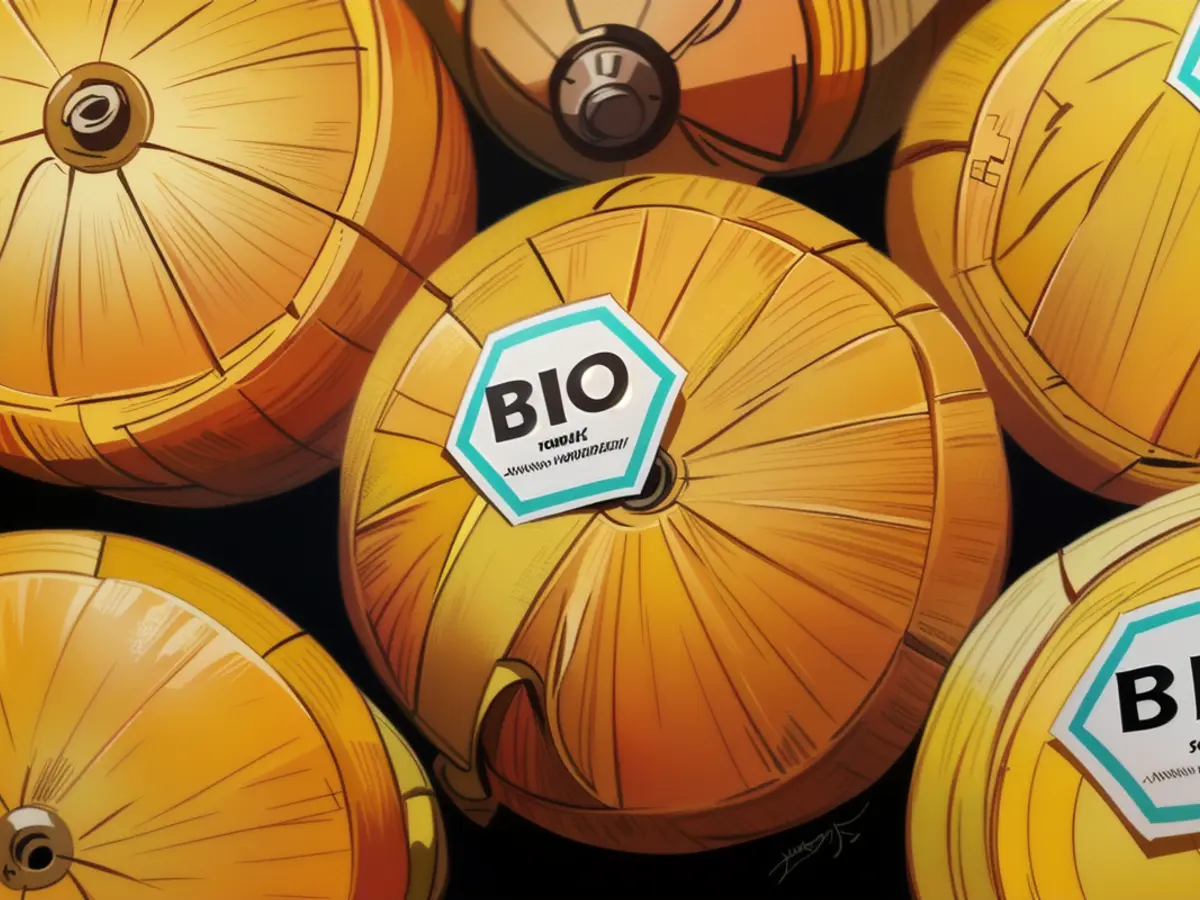Differences in organic food certification seals:
Switching to organic choices in the grocery store? It can be a bit confusing with so many certifications and labels out there. We're here to break it down for you!
A growing number of people are paying close attention to their diets these days, making conscious decisions to opt for organic products. The main reason? Organic farming practices align with their values of creating a closed-loop system between animals, humans, and plants. Furthermore, they're generally looking to stay away from genetically modified ingredients and synthetic chemicals such as pesticides and fertilizers.
Connected to Climate and the Environment
Heading down the aisles of your local supermarket, you'll come across varying organic seals and labels. These may have you wondering, what's the real difference? While you may see the EU's organic logo, a sheet of white stars on a green background, or the German hexagonal seal, they all serve the same purpose: signifying conformity to minimal standards set by the European Commission. Certification from any of these two seals indicates that the producers meet the EC Organic Regulation requirements.
Measurements, such as the number of hens and pigs per hectare, vary between these seals. For example, the EU allows approximately 230 laying hens or 14 fattening pigs per hectare, while Bioland, Demeter and Naturland have stricter guidelines, permitting only 140 laying hens or ten fattening pigs in the same area.
Know the Differences between Tieres and the Giants
Beyond EU regulations, some farming associations have more extensive standards in place. Bioland, Demeter and Naturland are of note, each with over a thousand members. With a focus on sustainability, regionality, and social responsibility, these farming associations go above and beyond the EU's minimum standards. All three carry signals of animal welfare prominently in their operations.
Demeter: A Seasoned Pioneer of Organic Farming
The oldest farming association in Germany, Demeter, focuses significantly on circular economy principles and soil fertility. Determined to promote and maintain soil fertility, Demeter farmers implement what they call biodynamic practices. Animals in this segment are not only fed with organic feed, but they're also treated in a species-appropriate manner. For instance, Demeter-certified cows can keep their natural horns.
Bioland: Promoting Sustainability and Local Farming
Another association dedicated to organic practices is Bioland, whose mission extends to fostering sustainability. By emphasizing the natural retention of nutrients in the farming cycle, Bioland seeks to avoid using non-renewable resources for fertilizers. The Bioland seal sets a high bar for animal welfare as well. For example, young animals are permitted more time with their mothers and Bioland has implemented its own guidelines to safeguard biodiversity on farms.
Bioland distinguishes itself by keeping their organic produce truly local. To receive the Bioland seal, the ingredients must be produced exclusively within Germany and South Tyrol, processed locally, and undergo stringent inspection. This consequently reduces carbon emissions by preserving the soil and the crops, as well as keeping transport routes short.
Naturland: The Organic Organization with Empathy for Farmers and Employees
The third-largest German growers' association, Naturland, dedicates itself to not only upholding ecological guidelines for animal welfare but also to ensuring ethical treatment of employees. Operating internationally, they promote the protection of human rights and ensure no child or forced labor is used in their operations. Furthermore, they oversee the observance of minimum wages and social benefits in all areas.
With these additional guidelines in place, feel reassured that your organic choices are not only good for your body but also for the environment and the individuals behind these products.
Read also:
- This will change in December
- Dikes withstand water masses so far - Scholz holds out the prospect of help
- Fireworks and parties ring in 2024 - turn of the year overshadowed by conflicts
- Attacks on ships in the Red Sea: shipping companies avoid important trade route
- In their pursuit of healthier options, many consumers seek advice from organic food advisors who can guide them through the various tests conducted on organic produce to ensure compliance with stringent standards, such as those set by organizations like Bioland, Demeter, and Naturland.
- To create a transparent and trustworthy market for organic food, some consumers opt for purchases from certified organic advisors, who conduct rigorous tests to confirm that the food meets the organization's guidelines on aspects like soil fertility, animal welfare, and sustainable farming practices.
Source: www.ntv.de







